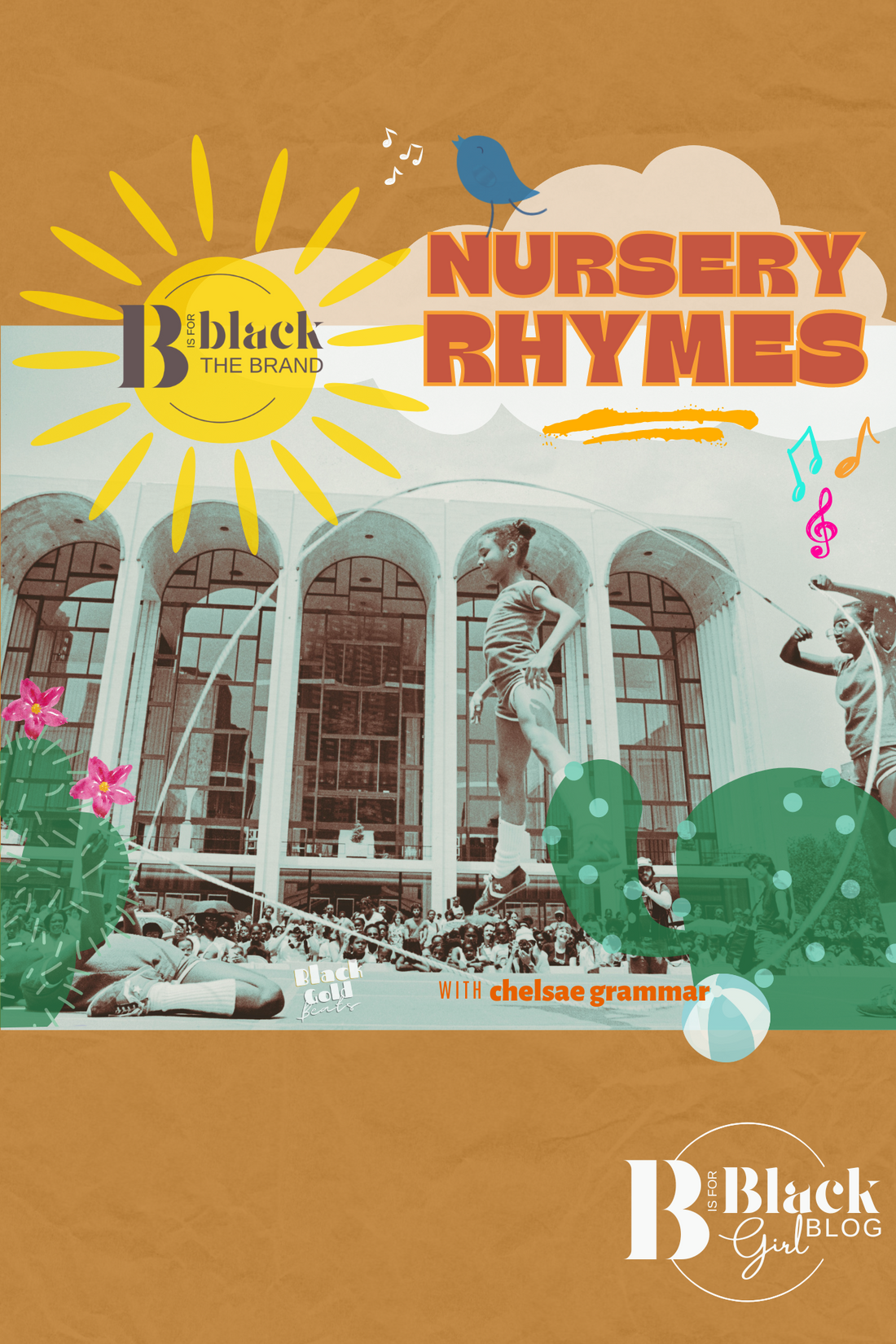
R is for "Racist Nursery Rhymes"?? 🤔
Share
It's no secret that many American traditions and ideals are rooted in racism. There's literally nothing more American than racism it's self. Those who are never on the receiving end of actual racism often ask the question, "Why do you/they always have to make everything about race?" Those who are never on the receiving end of actual racism, can't understand why race is such a big issue in the Black community. Those who are never on the receiving end of actual racism can't figure out why race is always a topic of discussion for Black people. Those who are never on the receiving end of actual racism, are probably unaware of how, for Black people racism can potentially impact every aspect of our lives. Those who are never on the receiving end of actual racism are probably unaware that many of their forefathers were absolutely obsessed with race and weaved it very tightly into the fabric that is America. They weaved racism into the school system, financial and banking system, the housing system and into city layouts. The modern day police is an institution that was one hundred percent conceived and structured around the ideals of racism. And what would you say if I told you that even something as child-friendly and innocent as a Nursery Rhyme was also rooted in racism? *Gasp*
A Nursery Rhyme?
Yes, but not just a Nursery Rhyme, many Nursery Rhymes. Of the seven Nursery Rhymes that we "Blackified" and seasoned for our B is for Black Nursery Rhyme album, two of them have racist origins (that we know of). According to my research, the song titled Do Your Ears Hang Low (our version is Hang Low or Do Your Curls Hang Low), is sung to the tune of the minstrel show songs "Zip Coon" and "Nigger Love a Watermelon Ha Ha Ha." It's also said that the lyrics of "Do You Ears Hang Low" are a reference to the ears and testicles of freed slaves that some Confederate soldiers would cutoff and string together to wear as a necklace. When I learned that, I was utterly disgusted and appalled. While nothing from America's racist history surprises me, I am still disgusted and disheartened by the decadence and boldness of American racism. It's hard to know the "true" origin, quite frankly there can be multiple versions and truths. It should be noted that the song is also said to originate from Continental soldiers singing about their balls, Do Your Balls Hang Low?. In any case the level of perversion in both versions is absolutely sick and unacceptable. And not suitable for children.
The second song on B is for Black Nursery Rhymes that has a racist background is A Tisket a Tasket. During my research I found that the earliest traces of the song are found in chapter six of a book called In No-Man's Land by Elbridge Streeter Brooks in 1885. In this chapter, the Duke of Tisket and the Count of Tasket are set to fight for the privilege of escorting Queen Anne-who-sits-in-the-sun to search for the missing letter that was sent to her from the Chief of the Gamekeepers. In the story the crowd sings the familiar lines in chorus:
"A Tisket; A Tasket;
A green and yellow basket
I sent a letter to my love,
And on my way I dropped it;
I dropped it; I dropped it;
To this, the main character Ruthie replies, "Oh, I know where it is then!" She goes on to say:
A little darky picked it up
And put it in his pocket
His pocket; his pocket!
It should be noted that the boy is repeatedly and solely referred to as "darky boy." Further explanation of the blatant and obvious racism, is really not even required; however I will briefly indulge.
Darky was a racial slur used for Black people as early as the 18th century. In the context of In No-Man's Land, a young Black boy is referred to as a "darky boy" rather than given an actual name or just being called "the boy" or the "pickles and cream boy" as readers are first introduced to him by him selling hot pickles and cream. Calling him a darky boy, is a way to dehumanize the character and suggest to readers that his Blackness is related to him picking up the letter that the Chief of Gamekeepers dropped. The narrator of the story even goes on to refer to the boy as "the fugitive," as if he is a real criminal that has committed and actual crime. Referring to the boy as "darky boy" is a way to turn his innocent childlike actions and playfulness into a full-blown crime.


And to think, we've been singing a song that is rooted in the characterization of a playful Black boy as a fugitive criminal. To think that Ella Fitzgerald cheerfully sang this song and even recorded a music video in which she is surrounded by white passengers on a bus as she stands skinnin' and grinnin', singing a song that is derived from a song about a little "darky boy," stealing a silly and worthless love letter.
A Tisket, A Tasket, is also a wonderful example of the white-fascination with race and Blackness. The plot in Chapter 6 of In No-Man's Land , would have in no way suffered if readers weren't made aware of the little boys Blackness. That character could have been any color, and the story would have remained exactly the same. It was in no way impactful to share or even create race for that character.
The buck absolutely does not stop at A Tisket, A Tasket. There are a host of nursery rhymes that were actually written for and performed in minstrel shows, like Camptown Races which was introduced by blackface minstrel troupe Christy's Minstrels as "Gwine to Run All Night, or De Camptown Races," and uses "negro dialect" to poke fun at the way some Blacks spoke. Another is I've Been Working on the Railroad in which the minstrel song caricatures Black railroad workers and, the name Dinah which is featured in the song is actually a caricature of a "mammy" figure believed to be named after Old Aunt Dinah-- a cook in Harriet Beecher Stowe's Uncle Tom's Cabin. Then there is Jump Jim Joe which is a cleaned up version of the 1828 blackface minstrelsy tune "Jump Jim Crow" by Thomas Dartmouth Rice the so called father on minstrelsy. And let's not forget, 10 Little Monkeys, which was originally titled "Ten Little Nigger Boys" (and also Ten Little Injuns"-- this was even used as the title for a 1940s book of children's nursery rhymes and became the title of one of Agatha Christies novels in 1939.
When I say the racism was bold and overt, that is exactly what I mean. Black people did not have to be included in white entertainment, but they were seemingly so obsessed with race, racism and Blackness that they centered a whole genre of entertainment around their bigoted and skewed perception of Blackness. Other nursery rhymes that have racist origins or backgrounds are:
'Eenie, Meenie, Miny, Moe' which was originally a song about catching slaves.
The original lyrics are as follows:
" Eenie, meenie, miny, moe
Catch a nigger by his toe.
If he hollers, let him go
Eenie, meenie, miny, moe"
Jimmy Crack Corn' which tells the story of a slave, who is portrayed as an ignorant fool, celebrating the death of his master and his new “freedom” to drink “massa’s” corn whiskey.
The original lyrics are as follows:
"When I was young I used to wait
On massa and hand him the plate;
Pass down the bottle when he got dry,
And brush away de blue tail fly.
Jim crack corn I don’t care,
Jim crack corn I don’t care,
Jim crack corn I don’t care,
Ole massa gone away."
Shoo Fly, Don’t Bother Me' which originally features repeated use of the word nigger, describes how a fly hovered over a sleeping, Black man and was also, you guessed it-- a minstrel show song!
The original lyrics are as follows:
"Shew! fly, don’t bother me,
Shew! fly, don’t bother me,
Shew! fly, don’t bother me,
I belong to Comp’ny G.
I feel, I feel, I feel,
That’s what my mother said,
Whenever this nigger goes to sleep
He must cover up his head
If I sleep in the sun this nigger knows,
If I sleep in the sun this nigger knows,
If I sleep in the sun this nigger knows,
A fly come sting him on the nose."
Tie Me Kangaroo Down, Sport is a 1957 Australian children’s song about the emancipation of the Aboriginal Australians. The song constantly refers to the Black individuals as “Abos,” a derogatory term used to demean this group of individuals. The original lyrics are as follows:
"Let me Abo go loose,
Lou Let me Abo go loose:
They’re of no further use,
Lou So let me Abo go loose."
Pick a Bowl of Cherries, originally titled Pick a Bale of cotton, is a song that can be seen as glorifying and poking fun at slave conditions.
The original lyrics are as follows:
"Jump down, turn around,
Pick a bale of cotton.
Gotta jump down, turn around,
Oh, Lordie, pick a bale a day."
"Oh! Susanna" which was also sung in minstrel show, is a song in which The protagonist of the song is an African-American slave who is portrayed as dumb and naive. In the song, the singer can't grasp the ideas of temperature and geography.
The original lyrics are as follows:
"It rain’d all night de day I left,
De wedder it was dry,
The sun so hot I froze to def."
Whewww I'm tiiiiiiiied! Racism is truly exhausting, who would've thunk that so many of the songs that we grew up singing so joyfully were actually written to mock our ancestors. If you're anything like me, learning the level of depravity in these now children's songs, leaves you with more questions than answers. Like, "What kind of sickos were singing these songs to or around their children? How were there enough people exposing their children to racism and bigotry for these songs to become traditional children's songs? --
And this is how racism has been woven into the very fabrics of our country. This is how racism became an American practice. This is how racism has been passed down from generation to generation. And this is why, racism is so hard for us Americans to shake. This is also why race and racism is such a big issue for Black people.
So forgive us for thinking (when something unexplainably) does not work in our favor), "it's because I'm Black." Because, historically speaking, our misfortunes were always because we were Black. The next time someone asks "why do they make everything about race?" Tell them, because in America, everything is always about race; even the nursery rhymes.
